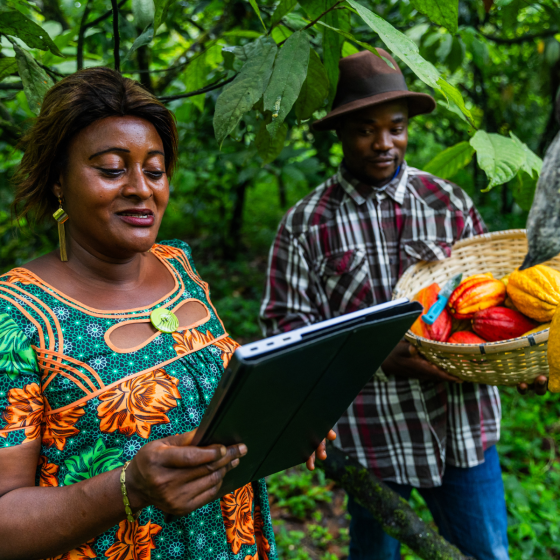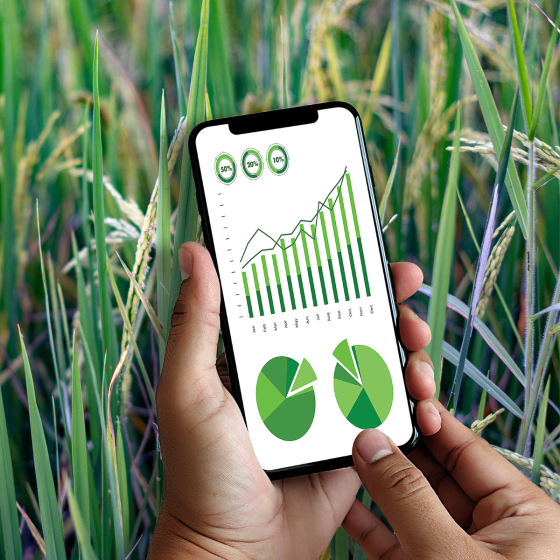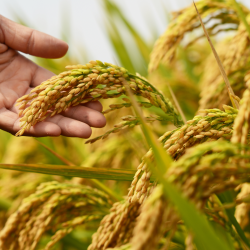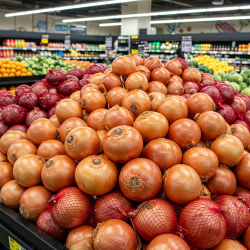Background and Context
Policy Overview
The Special Agro-Industrial Processing Zones (SAPZ) Initiative stands as a cornerstone of the African Development Bank’s ambitious Feed Africa Strategy (2016–2025). Its fundamental premise is the establishment of integrated agro-industrial hubs within high-potential rural areas. These zones are designed to meticulously integrate the entire agricultural value chain – from input supply and primary production to processing, value addition, and seamless marketing of agricultural commodities. In Nigeria, this flagship initiative was formally launched on 24 October 2022, marking a strategic commitment to transforming the nation’s agricultural landscape. Phase 1 of the program targets eight key states across the federation: Kaduna, Cross River, Imo, Kano, Kwara, Ogun, Oyo, and the Federal Capital Territory (FCT), selected for their unique agricultural advantages and readiness. The pivotal moment arrived in April 2025, with groundbreaking ceremonies in Kaduna (April 8) and Cross River (April 10), signaling the tangible commencement of construction and a new era of agro-industrialization.
Rationale
Nigeria’s economic future is inextricably linked to its agricultural sector. Despite contributing approximately 24% to the nation’s GDP, the country grapples with a significant food import bill, estimated at $4.7 billion in 2024. This underscores a critical need to bolster local production, achieve sustainable food security, and drastically reduce import dependency. The sector is besieged by challenges including persistently low productivity, staggering post-harvest losses that diminish farmer incomes, and the ever-present specter of insecurity. SAPZ is strategically designed to confront these systemic issues head-on through targeted investments in value chain development, provision of modern infrastructure, and fostering a conducive environment for private sector participation. Crucially, the SAPZ initiative is meticulously aligned with the goals of Nigeria’s own National Agricultural Technology and Innovation Policy (NATIP) 2022–2027, amplifying their shared objectives of food security, job creation, and fostering a technology-driven agricultural economy. This synergy promises to leverage Nigeria’s vast 34 million hectares of arable land to its fullest potential.
Scope
Phase 1 of the SAPZ initiative is designed for a focused impact, concentrating on strategic crops that offer significant potential for growth and value addition: maize, cassava, rice, soybean, and cocoa. It also includes key livestock sub-sectors such as poultry and beef. The financial underpinning for Phase 1 is a substantial $510 million, mobilized through a consortium of partners: $200 million from the AfDB, $150 million from the Islamic Development Bank (IsDB), $100 million from the International Fund for Agricultural Development (IFAD), and $60 million from the Green Climate Fund. This initial phase is projected to directly benefit 1.5 million households, generate an estimated 400,000 direct jobs and 1.6 million indirect jobs, with a commendable target of 50% women participation. Looking ahead, ambitious plans for Phase 2 aim to expand the initiative to an additional 24 states, with a significant $2.2 billion in investment interest already mobilized, signaling strong confidence in the program’s potential for nationwide transformation.
Goals and Objectives
The SAPZ Initiative is a cornerstone of Nigeria’s agricultural revolution, articulated through clear core goals and a multi-faceted approach to its implementation.
Core Goals:
- Enhance Food and Nutrition Security: To significantly increase local food production and processing capabilities, thereby reducing Nigeria’s substantial $4.7 billion annual food import bill and ensuring a reliable supply of affordable, nutritious food for its rapidly growing population.
- Create Millions of Jobs: To generate substantial employment opportunities, particularly for the nation’s vibrant youth and women, by establishing thriving agro-industrial hubs and associated agricultural transformation centers across rural and peri-urban areas.
- Drive Economic Diversification: To build competitive, export-oriented agricultural value chains that will contribute significantly to economic diversification, moving Nigeria beyond its reliance on oil revenues.
- Transform Rural Economies: To revitalize rural areas by providing essential infrastructure, including reliable power, clean water, accessible roads, and robust ICT connectivity, attracting vital private investment and turning zones of potential into zones of prosperity.
Key Components
The strategic implementation of SAPZ revolves around several interconnected components:
- Agro-Industrial Hubs (AIHs): These are the central processing and value addition facilities, strategically located in close proximity to major agricultural production zones. They will host various agro-processing companies, benefiting from shared infrastructure and services.
- Agricultural Transformation Centers (ATCs): These support structures will provide essential services to farmers within the SAPZ catchment areas, including farmer training, access to certified inputs (seeds, fertilizers), extension services, and crucial market linkages.
- Aggregation Centers: Designed to minimize post-harvest losses, these centers will improve the collection, sorting, storage, and initial processing of raw agricultural produce, enhancing quality and ensuring consistent supply to the AIHs.
- Infrastructure Development: A foundational pillar, this involves the provision of critical enabling infrastructure within and around the zones, including reliable energy (often renewable), water supply, all-season farm-to-market roads, and advanced digital connectivity (ICT) to attract and sustain private investment.
- Inclusivity: A core principle, SAPZ prioritizes the active participation of women and youth. This is supported by gender-sensitive guidelines, targeted capacity-building programs, and initiatives to ensure their equitable access to opportunities within the agro-industrial value chains.
Alignment with NATIP
The SAPZ initiative is designed to be deeply synergistic with Nigeria’s National Agricultural Technology and Innovation Policy (NATIP) 2022–2027, creating a powerful, mutually reinforcing framework:
- Complements Key Pillars: SAPZ directly complements NATIP’s pillars of rapid mechanization, priority crop value chain strengthening, and market development by providing the physical infrastructure and private sector investment necessary for these areas to thrive.
- Supports Digital & Climate-Smart Goals: Through its focus on modern infrastructure and technology investment, SAPZ provides an ideal platform to support NATIP’s emphasis on digital agriculture (e.g., precision farming, market information systems) and climate-smart practices (e.g., efficient irrigation, resilient crop varieties), fostering sustainable and productive farming.
Progress Assessment
As of mid-2025, the SAPZ Initiative in Nigeria has made significant strides, transitioning from policy conceptualization to tangible on-ground implementation, underscored by strong partnerships and strategic commitments.
- Achievements:
- Phase 1 Launch and Groundbreaking: A landmark moment occurred in April 2025, with official groundbreaking ceremonies marking the commencement of construction for Phase 1 in Kaduna (April 8) and Cross River (April 10) States. These high-profile events were graced by key dignitaries, including AfDB President Dr. Akinwumi Adesina, Nigeria’s Vice President Kashim Shettima, and the respective state governors, signaling strong political will and national commitment.
- Secured Funding Commitments: For Phase 1, a substantial $510 million in funding has been secured from a consortium of international partners. This includes direct contributions from the AfDB, IsDB, IFAD, and the Green Climate Fund. Furthermore, the Africa Investment Forum (AIF) 2024 successfully mobilized an impressive $2.2 billion in investment interest for SAPZ Phase 2, demonstrating robust confidence from global financial institutions and private sector players, including the crucial partnership with Arise Integrated Industrial Platforms (Arise IIP), a leading developer of industrial zones.
- Enhanced State Engagement and Budgetary Alignment: States involved in Phase 1 are actively demonstrating commitment. Notably, Kaduna State significantly ramped up its agricultural budget from N1.4 billion in 2023 to a remarkable N74.2 billion in 2025. This substantial increase indicates a strong alignment of state-level fiscal policy with SAPZ’s transformative goals, focusing on critical crops like maize, soybeans, ginger, and tomatoes. Cross River State is strategically leveraging its abundant potential in cocoa, cassava, and rice for its SAPZ hub.
- Strategic Partnerships: The collaborative framework with international financiers like IsDB, IFAD, and the Green Climate Fund, alongside the engagement of private-sector giants like Arise IIP, ensures not only the mobilization of substantial resources but also the injection of specialized expertise in infrastructure development and zone management.
- Proximity to Innovation Hubs: The strategic selection of SAPZ sites near prominent academic institutions, such as Ahmadu Bello University in Kaduna and the University of Calabar in Cross River, is a forward-thinking approach. This proximity is expected to foster seamless knowledge transfer, facilitate agricultural research, and provide a steady pipeline of skilled human capital for the agro-industrial zones.
Quantitative Insights
The SAPZ Initiative is explicitly designed to increase agricultural productivity by over 60% and achieve a significant reduction in post-harvest losses, thereby enhancing food availability and farmer incomes. Phase 1 of the program targets direct benefits to approximately 1.5 million households across the eight participating states. Within pioneering states like Kaduna and Cross River, each SAPZ is projected to create at least 60,000 direct and indirect jobs, contributing significantly to youth and women employment.
Synergy with NATIP
The SAPZ Initiative seamlessly integrates with and reinforces the objectives of Nigeria’s National Agricultural Technology and Innovation Policy (NATIP):
- Value Chain Strengthening: SAPZ directly supports NATIP’s focus on strengthening priority crop value chains (e.g., rice, cassava, maize) and its goals for advanced livestock development by providing the necessary processing and market infrastructure.
- Investment Mobilization: SAPZ’s success in mobilizing private-sector investments, as evidenced by the significant interest for Phase 2, directly complements NATIP’s vision for establishing a robust Agricultural Development Fund, leveraging external capital to drive growth.
Challenges
Despite the initial momentum and strategic design, the SAPZ Initiative in Nigeria faces a confluence of deeply rooted and operational challenges that, if unaddressed, could impede its transformative impact.
- Security Threats – The Unyielding Obstacle: The pervasive menace of farmer-herder conflicts, banditry, and insurgency, particularly pronounced in states like Kaduna (a key SAPZ Phase 1 location), continues to pose an existential threat. This instability directly restricts farmers’ access to their fields, disrupts supply chains, and, crucially, deters both domestic and international private investment into the SAPZ sites and their surrounding agricultural corridors. No amount of infrastructure can compensate for a lack of security, undermining the very foundation of the initiative.
- Infrastructure Gaps – The Connectivity Bottleneck: While SAPZ aims to provide critical infrastructure within the zones, the broader inadequacy of rural infrastructure across Nigeria remains a significant impediment. Poor last-mile roads from farms to aggregation centers, unreliable electricity supply beyond the immediate zone, and limited digital connectivity outside the urban hubs severely limit SAPZ’s scalability and operational efficiency. The vision of seamless farm-to-factory integration is hampered if produce cannot reach the processing zones efficiently or if factories face persistent power outages.
- Smallholder Farmer Integration – Bridging the Divide: A critical challenge lies in ensuring the genuine and equitable inclusion of Nigeria’s vast population of smallholder farmers. They often face high costs of technology adoption, a lack of access to affordable credit, and insufficient technical training to meet the quality and volume demands of industrial processing. Weak and informal linkages between individual smallholder farmers and the larger agro-processors within the SAPZ hubs hinder seamless value chain integration, risking the creation of enclaves of prosperity rather than inclusive growth.
- Funding Sustainability – The Long-Term Horizon: While Phase 1 has secured $510 million in funding, the heavy reliance on donor and multilateral bank financing raises concerns about the long-term sustainability and scalability of the initiative. The ambitious $2.2 billion target for Phase 2, while signaling strong interest, still requires meticulous follow-through and a robust strategy for continuous domestic and private-sector capitalization to avoid donor fatigue and project stalls.
- Policy Coordination – A Federal-State Disconnect: Despite the strong alignment on paper, the practical implementation often suffers from misalignment and poor coordination between federal, state, and local governments. This can lead to delays in land acquisition, inconsistent policy enforcement, and inefficient allocation of resources. Furthermore, there is a risk of limited practical integration with NATIP’s digital agriculture and extension service goals, where the grand vision of SAPZ may not fully leverage or adequately support the on-ground implementation mechanisms of NATIP, creating potential duplication or missed synergies.
- Climate and Economic Pressures – External Headwinds: The agricultural sector is increasingly vulnerable to external shocks. The impacts of climate change, including devastating floods and prolonged droughts, directly threaten crop yields and the very viability of farming within and around SAPZ zones. Simultaneously, global economic challenges, exemplified by the lingering effects of the Russia-Ukraine war, continue to drive up the cost of essential agricultural inputs (fertilizers, machinery, fuel), directly impacting the profitability and affordability of operations within the processing zones.
Recommendations for Enhanced Implementation
To unlock the full transformative potential of the African Development Bank’s Special Agro-Industrial Processing Zones (SAPZ) Initiative in Nigeria, a concerted, strategic, and adaptive approach is critical. The following recommendations are designed to address the identified challenges and accelerate progress:
- Strengthen Security Measures with Dedicated Focus:
- Establish SAPZ Security Task Forces: Create and adequately fund dedicated, well-equipped security task forces comprising elements from relevant national security agencies (e.g., military, police, civil defense) and local vigilantes, specifically mandated to protect SAPZ sites, access roads, and surrounding farmlands.
- Leverage Technology for Surveillance: Deploy modern surveillance technologies (e.g., drones, community-based alert systems) to enhance monitoring and rapid response capabilities within and around the zones.
- Community Engagement for Intelligence: Foster strong relationships with host communities to build trust and facilitate intelligence gathering, enabling proactive security interventions.
Accelerate and Prioritize Critical Infrastructure Development
- Expedite Off-Grid Power Solutions: Given national grid unreliability, prioritize and fast-track the deployment of reliable, cost-effective, and sustainable off-grid power solutions (e.g., solar, gas-to-power mini-grids) within SAPZ hubs and for critical surrounding infrastructure.
- Dedicated Road Rehabilitation & Construction Fund: Establish a dedicated fund for the rapid rehabilitation and construction of critical farm-to-market and intra-zone roads, ensuring seamless logistics and reducing post-harvest losses.
- Digital Connectivity Hubs: Ensure every SAPZ site has robust, high-speed digital connectivity (fiber optics, 5G) and extend this connectivity to surrounding communities to facilitate market information access, precision agriculture, and digital literacy.
Enhance Smallholder Farmer Integration through Targeted Programs
- Dedicated Out-Grower Schemes: Mandate and incentivize agro-processing companies within SAPZs to develop structured out-grower schemes that provide smallholder farmers with access to quality inputs, technical support, guaranteed off-take agreements, and fair pricing mechanisms.
- Affordable Technology Access: Implement subsidy programs or low-interest credit facilities for smallholder farmers to access modern agricultural equipment, climate-smart technologies, and digital tools tailored to their needs.
- Capacity Building and Financial Inclusion: Scale up farmer training programs focused on best agricultural practices, financial literacy, and the use of modern technology. Link these programs to microfinance institutions to enhance access to credit. Prioritize women and youth in these initiatives.
Operationalize the Agricultural Development Fund (ADF) to Complement SAPZ
- Dedicated Funding Stream for SMEs: While SAPZ attracts large investments, the ADF (as outlined in NATIP) should be robustly capitalized and ring-fenced to provide accessible, low-interest credit specifically for small and medium-sized enterprises (SMEs) within the SAPZ ecosystem, including farmers’ cooperatives, input suppliers, and smaller processors.
- De-Risking Private Sector Investment: Utilize the ADF to de-risk private sector investments in SAPZs through partial credit guarantees and blended finance instruments, encouraging more domestic and international capital.
Strengthen Policy Coordination and M&E for Seamless Execution
- Joint Federal-State SAPZ Implementation Committees: Formalize and empower joint federal-state SAPZ implementation committees with clear mandates, regular meeting schedules, and performance targets. These committees should streamline land acquisition, regulatory approvals, and resource allocation.
- Integrated M&E Framework: Develop a robust, unified monitoring and evaluation framework for SAPZ that is closely integrated with NATIP’s M&E. This framework must utilize real-time data, clear performance indicators (e.g., jobs created, productivity increase, private investment mobilized), and regular independent audits to ensure transparency and accountability.
- Inter-Ministerial Collaboration: Foster compulsory inter-ministerial collaboration (e.g., Agriculture, Finance, Works, Power, Digital Economy, Interior) to address cross-cutting challenges and leverage resources effectively for SAPZ implementation.
Embed Climate Resilience and Digital Transformation
- Climate-Smart Infrastructure: Ensure all new infrastructure within SAPZs is designed with climate resilience in mind (e.g., flood-proof roads, water harvesting systems, renewable energy sources).
- Digital Hubs within Zones: Establish dedicated digital innovation hubs within each SAPZ to foster agritech startups, provide training, and develop customized digital solutions for farmers and processors.
- Digital Agriculture Enablement Fund: Create a fund specifically to subsidize digital tools and services for smallholder farmers connected to SAPZs, ensuring they benefit from real-time market data, weather forecasts, and agronomic advice.
Conclusion
The African Development Bank’s Special Agro-Industrial Processing Zones (SAPZ) Initiative is a visionary and indispensable undertaking for Nigeria’s economic future. It offers a clear pathway to unlocking the immense potential of the nation’s agricultural sector, transitioning from subsistence farming to a modern, industrialized, and export-oriented powerhouse. The groundbreaking ceremonies in Kaduna and Cross River in April 2025 symbolize a crucial leap from ambition to action, showcasing significant financial commitment and strong political will.
The successful and inclusive implementation of SAPZ, alongside the National Agricultural Technology and Innovation Policy (NATIP), holds profound implications for Nigeria. It promises to dramatically reduce the crippling $4.7 billion agricultural import bill, shore up national food security, generate millions of sustainable jobs for a burgeoning youth population, and genuinely transform rural economies from zones of struggle into vibrant centers of prosperity. This is an investment not just in agriculture, but in Nigeria’s long-term stability, economic diversification, and global competitiveness. The momentum gained in 2025 must be sustained and amplified. We urgently call upon all tiers of government (federal, state, and local), the African Development Bank, other multilateral financial institutions, and committed private-sector partners to redouble their efforts. It is imperative to swiftly and comprehensively address the persistent challenges of insecurity, infrastructure deficits, and smallholder integration. By prioritizing robust coordination, ensuring transparent implementation, and rigorously monitoring progress, Nigeria can fully realize the promise of SAPZ. The time is now to consolidate these gains, attract further investments, and ensure that by 2027, the SAPZ initiative stands as a shining testament to Nigeria’s agricultural revolution, a bedrock of its prosperity for generations to come.






